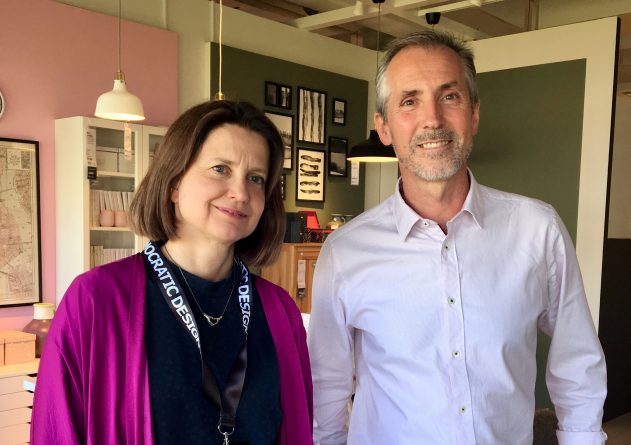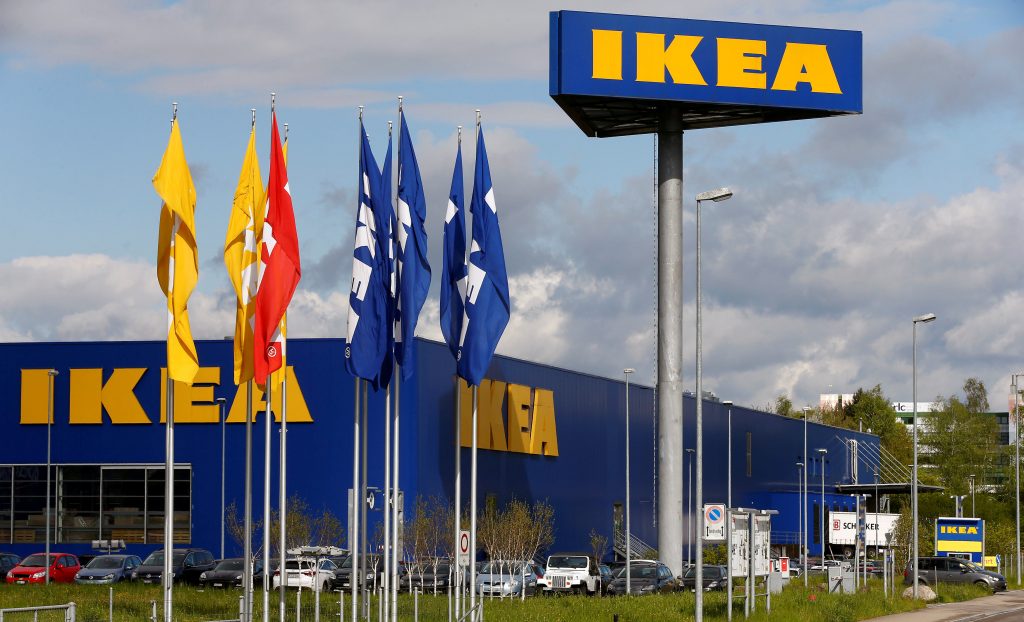FILE PHOTO: The company’s logo is seen outside of an IKEA Group store in Spreitenbach, Switzerland April 27, 2016. REUTERS/Arnd Wiegmann/File Photo
By Anna Ringstrom
ALMHULT, Sweden (Reuters) – IKEA, the world’s biggest furniture retailer, plans to use only renewable and recycled materials in its products by 2030, in the latest commitment by a global store group to reducing its impact on the environment.
Inter IKEA, the owner of the brand best known for its low-cost flat-pack furniture, said on Thursday it aimed to reduce the climate impact of each of its products by more than two thirds by the end of next decade.
Currently, 60 percent of the IKEA range is based on renewable materials, while nearly 10 percent contain recycled materials, an Inter IKEA spokeswoman said.
“Through our size and reach we have the opportunity to inspire and enable more than one billion people to live better lives, within the limits of the planet,” Inter IKEA CEO Torbjorn said in a statement to accompany the company’s 2030 sustainability strategy document.
“We are committed to taking the lead, working together with everyone – from raw material suppliers all the way to our customers and partners.”
Inter IKEA joins a growing list of global companies striving to make their operations more environmentally sustainable, although there are question marks over whether enough are taking action and whether they should be doing more.
The world’s 250 biggest listed companies account for a third of all man-made greenhouse gas emissions, but few have concrete goals to limit rising temperatures, a Thomson Reuters Financial & Risk white paper concluded in October.
Raw materials account for most of IKEA’s greenhouse gas emissions and, along with extending the potential lifespan of its products, is where IKEA sees the biggest opportunities for reducing its impact on the environment.
Along with phasing out non-recycled plastic, the company will implement changes ranging from greener glue in particleboard and more vegetarian food in its restaurants to a new candle recipe, Loof told Reuters.

Inter IKEA’s plan is the first to target all IKEA stores – the bulk of which are run by IKEA Group, but some of which are run by other franchisees – as well as the supply chain.
In total, there are 418 IKEA stores across 49 markets. Retail sales in the year through August 2017 were a combined 38.3 billion euros ($45.3 billion).
Inter IKEA set a so-called science-based target for IKEA Group to cut the climate impact of stores and other operations by 80 percent in absolute terms by 2030 compared with 2016.
Global brands including H&M, Coca-Cola and Sony have also committed to science-based targets, which aim to help limit global warming to well below 2 degrees Celsius – the goal set in the 2015 Paris agreement.
The Science Based Targets Initiative is a collaboration between the Carbon Disclosure Project, the World Resources Institute, the World Wide Fund for Nature, and the United Nations Global Compact.
Inter IKEA also said it would remove all single-use plastic products from its range and in-store restaurants by 2020, and that IKEA Group would roll out the sale of home solar solutions to 29 markets by 2025.
(Reporting by Anna Ringstrom; Editing by Mark Potter)
Copyright 2018 Thomson Reuters. Click for Restrictions.


